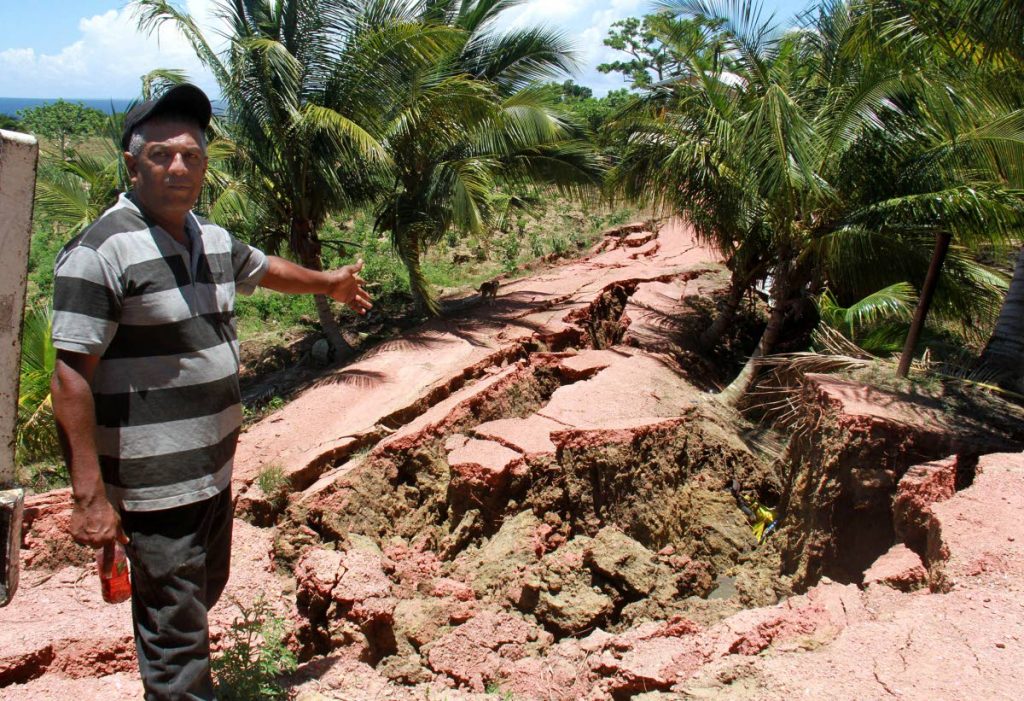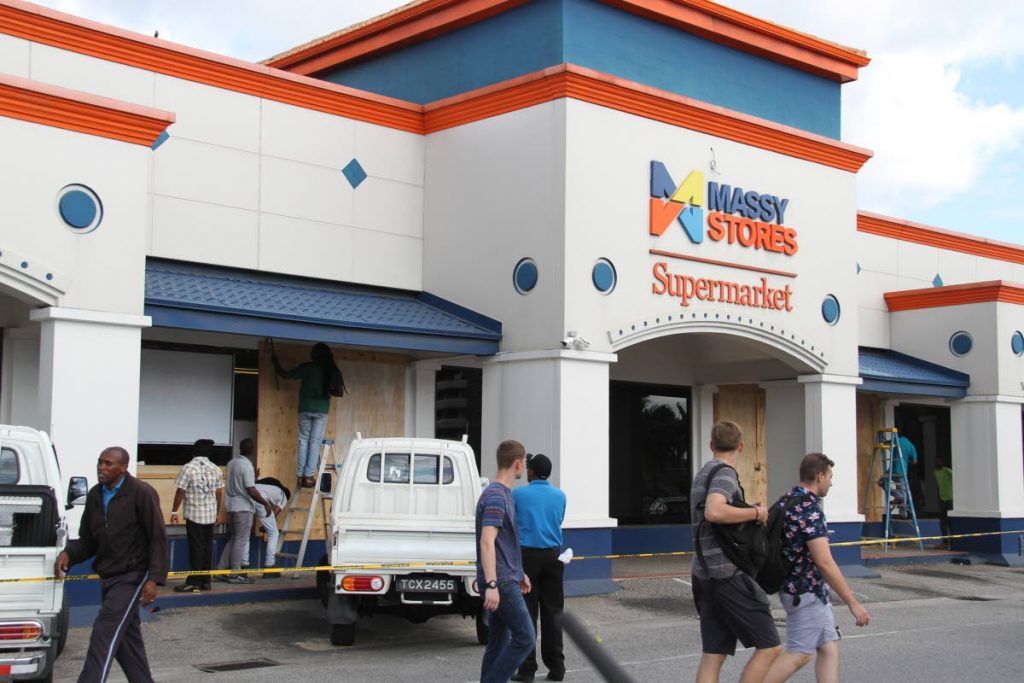The equaliser

Avonelle Hector Joseph has learnt a valuable lesson from natural disasters.
“They have a way of equalising and humbling us - letting us know life is fragile,” she said in an interview on Friday, four days after a 6.9 magnitude earthquake rocked TT.
“An earthquake does not say, ‘Let’s hit Laventille and leave Westmoorings. It just comes. It makes us as human beings really have a heart and gives us a different perspective.”
A globe-trotting humanitarian, Hector Joseph founded the non-governmental organisation, Is There Not A Cause (ITNAC), almost two decades ago, in response to the senseless murder of a young man she had taught in Sunday School.
But she also wanted to fill a void in Maloney which had been triggered by unemployment, disenchantment and hopelessness.
Her outreach morphed into a full-blown humanitarian organisation that has now forged meaningful linkages with other relief agencies around the world.
Hector Joseph said she was particularly awed by the inclusive nature of disasters during her missions.
Hector Joseph, who is also ITNAC’s co-team leader, recalled her interaction with a woman who had lost everything hours after Hurricane Ivan hit Grenada in 2004.
“The woman worked in Germany for either 35 years or 45 years and every single thing that she worked for was crushed. It was the exact amount of minutes it took to destroy her savings, her life. Everybody there became equalised.”

Hector Joseph said the aftermath of Katrina, a deadly category five hurricane which struck Texas and parts of Florida in 2005, told a similar story.
“When we were serving meals, you had people who had expensive cars walking up to the line for food and water. You had homeless people coming up to the line for food and water. You had people on minimum wage jobs.”
This is the message Hector Joseph wants TT citizens to take away from Tuesday’s tremor and its aftershocks - that everyone, rich and poor, are not spared nature’s fury. She said the experiences have humbled her.
“Life is short and I have learnt to live deliberately, intentionally.”
She also urged people to live in peace and love.
Despite her years of involvement in helping others, Hector Joseph admitted she was still taken aback by Tuesday’s earthquake. “Initially, I was like, ‘What the hell happening here?’” she said with a laugh.
Saying there had been much talk over the years about the likelihood of a massive earthquake hitting TT, Hector Joseph recalled she was talking to a friend in St Vincent on her cellphone at the time of the tremor.
“Would you believe, she (friend) felt the earthquake too.”
Hector Joseph said she quickly kicked into humanitarian mode, drawing from her experience with such disasters.
She said unlike a hurricane for which one, to some extent, can be prepared, one can never anticipate an earthquake.
“With an earthquake, you are like a sitting duck but you waiting for the aftershocks.”
After seeing a picture of a damaged house along St Francois Valley Road, Belmont, Hector Joseph said it would take some time for the full impact of the earthquake to be assessed.
“And so, we want to see how we can assist those persons in whatever way that we can and, at the same time, hope that we have no more aftershocks.”
However, she said the tremor and its traumatic effects on many citizens, has again pointed to a need to revisit the country’s disaster response strategy.
She said this was a very frightening reality.
“What is our family plan?” Hector Joseph asked. “What is our community plan? What is our national plan?”
Hector Joseph said although the regional corporations work in tandem with other responder agencies, she was unclear as to how effectively such synergies functioned.
“But, I think God gave us a dry run to put ourselves in a gear.”
Hector Joseph stressed TT, from a management of disaster perspective, must conceptualise its own model as opposed to trying to mirror those of other countries, some of which can readily tap into seemingly boundless quantities of food and water.
For example, she claimed, many families in TT can barely afford food supplies extending beyond a week, let alone a month to stock up in times of natural disaster.
“People are really eking out an existence and if there is a situation where people are being caught without food and water, we need to look at how we are going to manage our disaster response and management in the Caribbean context, the TT context.”
If its one thing Hector Joseph has learnt from her missions is that the distribution process must never be too complexed.
At ITNAC, she has devised an approach which she called KISS (Keep It Short and Sweet).
“Whether it is a tsunami, hurricane, earthquake, if your distribution chain is too complexed, the bottom line is that the people who have the need, get caught in the bureaucracy.”
After the 2010 Haiti earthquake, she recalled a relief group had said they did not know to distribute food in the affected regions.
“But we (ITNAC) were bringing in truck and trailer loads from the Dominican Republic and Trinidad as it came in because our distribution methods were simple.
“So, I think keeping it simple, low cost, reducing the cost of distribution and being ready to respond in a very simple and effective manner is the way to go.”
Hector Joseph said preparing for a natural disaster does not have to be a costly exercise.
She said people can have a what she called a “grab bag” containing vital, basic items as well as a zip lock/plastic bag to store personal documents.
Hector Joseph said families must also have an escape plan.
“We cannot accurately calculate all of the eventualities in the event of a natural disaster, especially an earthquake. But we can have conversations with our families, our children so we can be prepared psychologically and mentally for it.”
Hector Joseph also responded to the seeming complacency of some citizens to natural disasters.
Alluding to the special “aftershock” drinks which were being offered by bar owners to limers on the popular Ariapita Avenue, Woodbrook, on Tuesday, Hector Joseph said fun and laughter was a coping mechanism for many TT citizens.
“Trinis are a very unique people. And maybe that is why we not have a high suicide rate. They probably said to themselves if the earthquake has to come, it has to come. Whether it is right or wrong, it is who we are as a people.”
Hector Joseph said Haitians also were a resilient people.
She said amidst the crumbled buildings and dead bodies, many tried desperately to rebuild their shattered lives
“They were die hard, like ‘Let’s not be sad about it.’ So, you had people trying to regain some semblance in some little way. I guess that was their coping mechanism.”


Comments
"The equaliser"